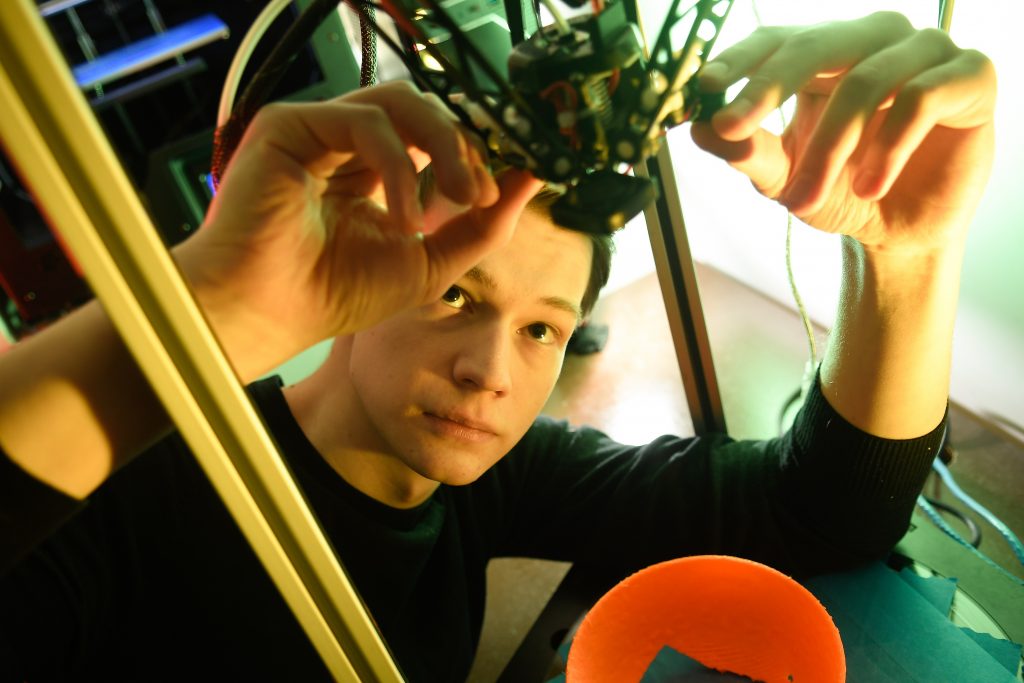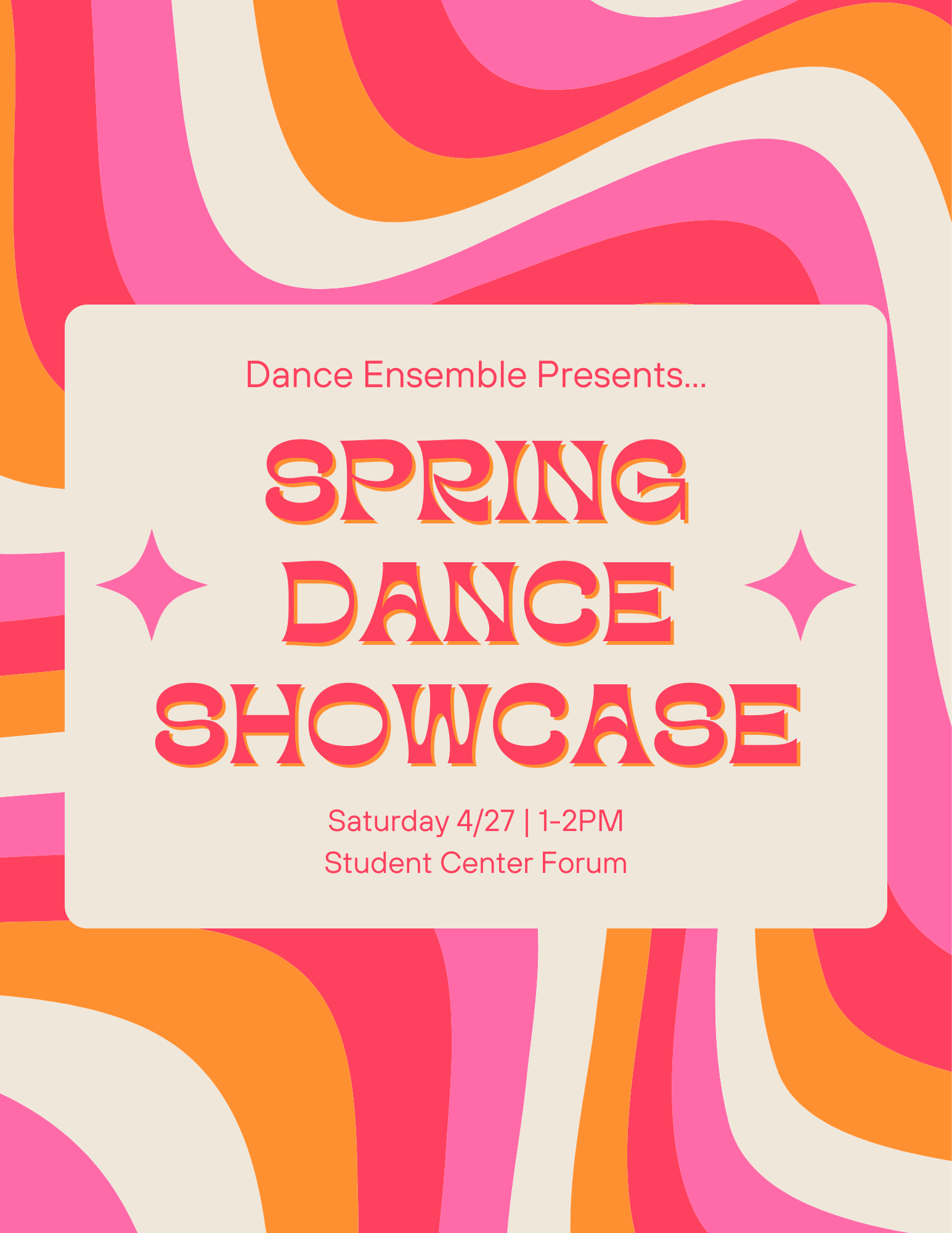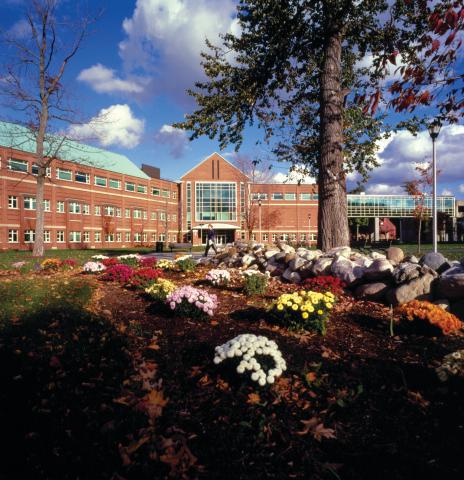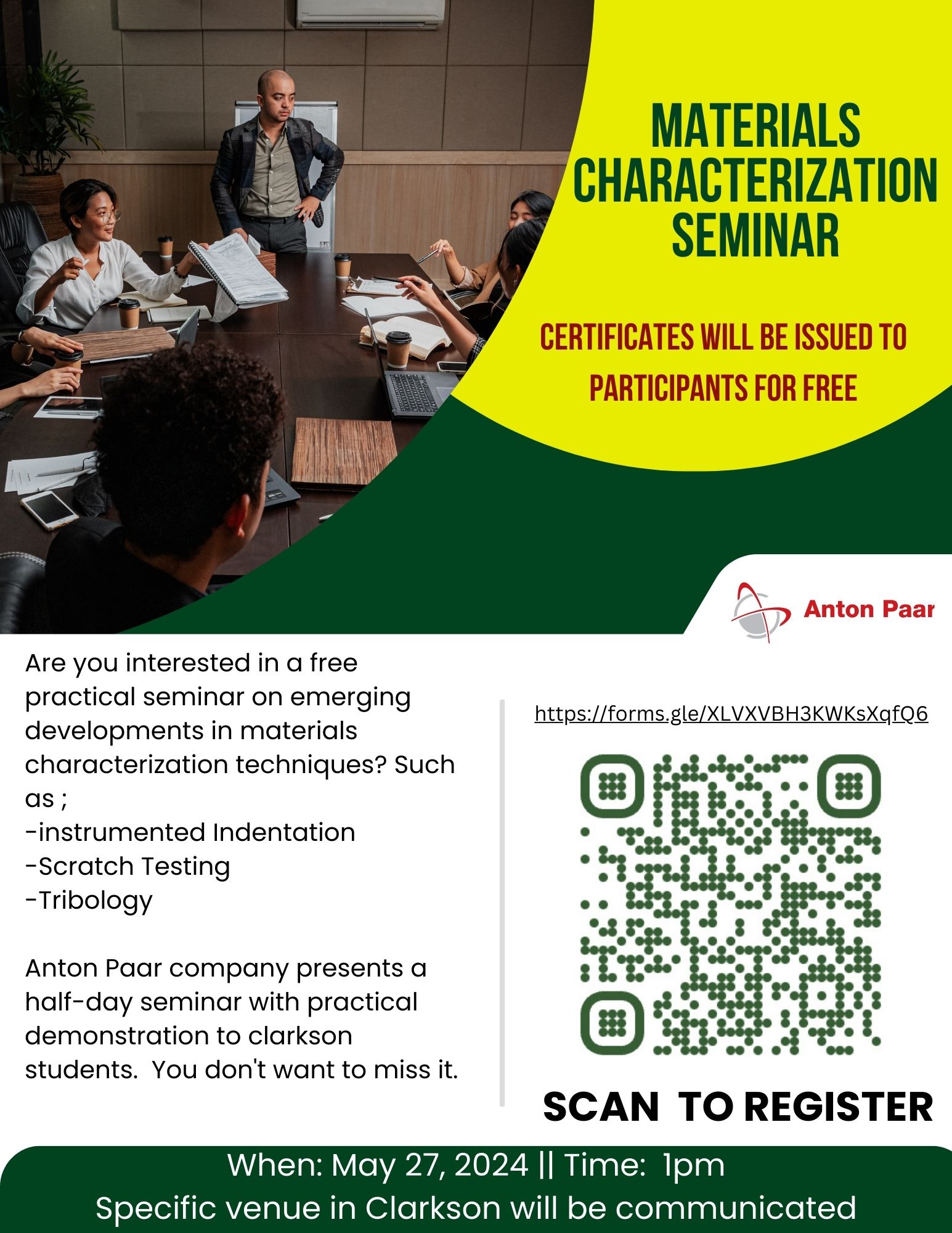
Computer Science student Nikolas Lamb has been awarded a 2019 National Science Foundation (NSF) Graduate Research Fellowship (GRF) award. Nikolas is one of only 16 students receiving the award in the “Comp/IS/Eng – Computational Science and Engineering” category, and is the first Computer Science student at Clarkson to receive the GRFP award while still an undergraduate senior at Clarkson. The global explosion in technology fields such as artificial intelligence and cybersecurity has made the Comp/IS/Eng category extremely competitive with an extremely low success rate, with the majority of awards going to students at R1 research institutions.

A broken elephant figurine repaired using a 3D printed piece generated by Nikolas Lamb’s reparative algorithm.
Nikolas is co-advised by Dr. Natasha Banerjee and Dr. Sean Banerjee at the Terascale All-sensing Research Studio (TARS), and he performs research in computational fabrication, with a focus on combining computer vision and graphics algorithms with 3D printing and scanning technologies. Nikolas started with TARS in January 2017, and within less than a year, he created the first fully modular, programmatically modeled photogrammetry based 3D scanner which resulted in a first author paper at the 2018 International Conference on Multimedia Modeling (MMM). Nikolas traveled to Bangkok, Thailand to showcase his work in 2018, and has filed a provisional patent for the scanner. Nikolas’s 3D scanner was extensively used to generate the oracle models for the thesis of a graduate student at TARS on understanding how objects age over time, and for his contributions Nikolas co-authored two more papers. During the summer of 2018, Nikolas worked as an undergraduate research assistant for Dr. Mooi Choo Chuah at Lehigh University through the Lehigh Research Experience for Undergraduates (REU) program (10% acceptance rate). During this time, Nikolas contributed a deep learning algorithm — specifically a pruned convolutional neural network — to automatically detect strawberries for assisting the local farming community. Unlike traditional neural networks that require high performance computing, Nikolas’ algorithm can run at 1.63 frames per second on resource-constrained low-power hardware such as the Raspberry Pi. Nikolas published a first author paper with Dr. Chuah and presented his work at the 2018 IEEE International Conference on Big Data (Big Data) in Seattle, Washington. Nikolas is currently preparing to submit his third first-author paper (and his fifth paper overall) to the Symposium on Computational Fabrication at Pittsburgh, PA. His work in this paper will revolutionize waste reduction by providing consumers with an approach to repair broken objects by printing restoration pieces using consumer 3D printers.
Upon graduating from Clarkson in May 2019, Nikolas will start his Ph.D. in the Department of Computer Science and Engineering at Lehigh University under the advisement of Dr. Chuah.



